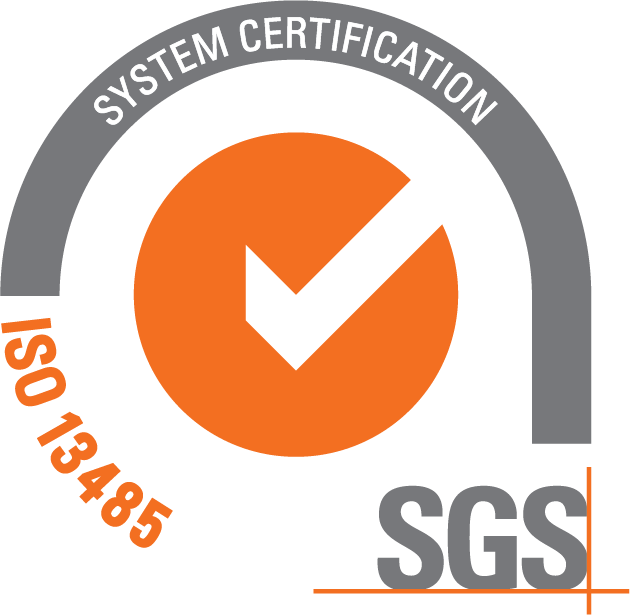
Work together
MagQu Ultra-Sensitive IMR Assays
MagQu's ImmunoMagnetic Reduction (IMR) Assays are designed for research use, offering a sensitive and reliable way to measure key biomarkers related to Alzheimer's disease and other neurodegenerative conditions. Using our single-antibody technology, researchers can detect biomarkers in plasma with precision, supporting efforts in early diagnosis and disease monitoring.
Ultra-sensitivity
Low limits of detections ~ fg/ml
Sensitive enough to precisely assay biomarkers in blood (~pg/ml)
Ultra-specificity
Non-significant interference by chemicals or molecules in plasma
High accuracy
User friendly
Without pre-treatment for plasma samples
One-step assay
Avoid systematic and human-operation variations
Single-antibody assay
Detecting all kinds of conformations of biomarker (monomers & oligomers)
True concentrations of existed biomarker in plasma samples

Pathological Biomarkers in Neurodegenertive Diseases
Aβ₁₋₄₀ (64.0 fg/ml)
Aβ₁₋₄₂ (80.0 fg/ml)
Total-Tau (35.0 fg/ml)
Phosphorylated-Tau181 (19.6 fg/ml)
α-Synuclein (0.21 fg/ml)
Phosphorylated α-Synuclein (0.072 fg/ml)
TDP-43 (0.68 fg/ml)
NfL (0.18 fg/ml)
UCH-L1 (3.3 fg/ml)
GFAP (31.4 fg/ml)
BDNF (3.0 fg/ml)
p-Tau217 (1.7 fg/ml) * Research use only
Comprehensive Biomarker Testing Platform
Flexible Configuration Efficient Service
Risk of Assessment
Aβ₁₋₄₂ and T-Tau
Prediction of Cognition Decline
Aβ₁₋₄₂
Treatment/Intervention Monitoring
Aβ₁₋₄₂ and T-Tau
Differential Assessments among AD, PD and FTD
TDP-43, Aβ₁₋₄₂, T-Tau, and α-synuclein
Certifications & Approvals
FAQs
-
Conventional methods like CSF testing and PET imaging are invasive, expensive, and not suitable for large-scale screening. IMR-based plasma biomarker assays are minimally invasive (just a blood draw), cost-effective, and scalable—ideal for early detection, routine monitoring, and broader accessibility.
-
IMR is a patented ultra-sensitive assay technology using antibody-coated magnetic nanoparticles. When these nanoparticles bind to target biomarkers (like Aβ1-42 or T-Tau) in plasma, a change in magnetic signal is measured, allowing accurate quantification at femtogram (fg/mL) levels—something traditional ELISA or SIMOA may struggle to detect due to low concentrations in blood.
-
IMR has demonstrated superior sensitivity and specificity in multiple clinical studies. For example, plasma Aβ1-42 x T-Tau measured by IMR achieved >96% sensitivity and >97% specificity for distinguishing Alzheimer’s patients from healthy controls. It also consistently shows higher diagnostic effect sizes than other platforms in meta-analyses.
-
IMR plasma biomarkers show strong correlation with gold-standard diagnostics:
Amyloid PET: Aβ1-42/Aβ1-40 measured via IMR has AUC = 0.936, sensitivity/specificity both 87%
CSF biomarkers: IMR-measured plasma T-Tau and Aβ1-42 correlate significantly with CSF levels.
Brain volume: T-Tau levels reflect hippocampal atrophy (r = –0.477, p < 0.0001).
Post-mortem validation: Aβ1-42 x T-Tau levels correlate with autopsy-confirmed amyloid pathology.
-
Draw blood into K2/K3 EDTA tubes (non-fasting)
Store at 20–25°C, not on ice
Centrifuge within 4 hours, collect plasma
Freeze at –80°C (stable for up to 5 years)
This standardized protocol ensures consistency in ultra-sensitive measurement.
-
Yes. IMR kits for Aβ1-40, Aβ1-42, and T-Tau are CE IVD-certified and approved for clinical use in Taiwan, the EU, and South Korea. Additional biomarkers like p-Tau217 are currently for research use.
-
Yes. IMR systems are being introduced in the U.S. through CLIA-certified labs. We are actively expanding partnerships to bring these assays to more clinical and research sites.
-
We offer multiple ways to support researchers:
Sample testing service: Send us your plasma samples for IMR testing.
We provide full protocols for blood collection, plasma handling, and shipping, along with technical support to ensure sample integrity.
Upon receiving your samples, our central lab will complete the testing within 2–4 weeks.
Deliverables include a full IMR assay report with quantitative results and interpretation guidance (if applicable).
For labs interested in running the assay in-house, we also offer kits and analyzer systems.
Please contact us to request the sample handling protocol or explore collaboration opportunities.
Learn More About MagQu
Core Tech
Learn about the principles and advantages of our IMR technology
Validation Studies
Review the scientific evidence supporting the accuracy and reliability of our assays.
Publications
Access a complete list of our scientific publications.






